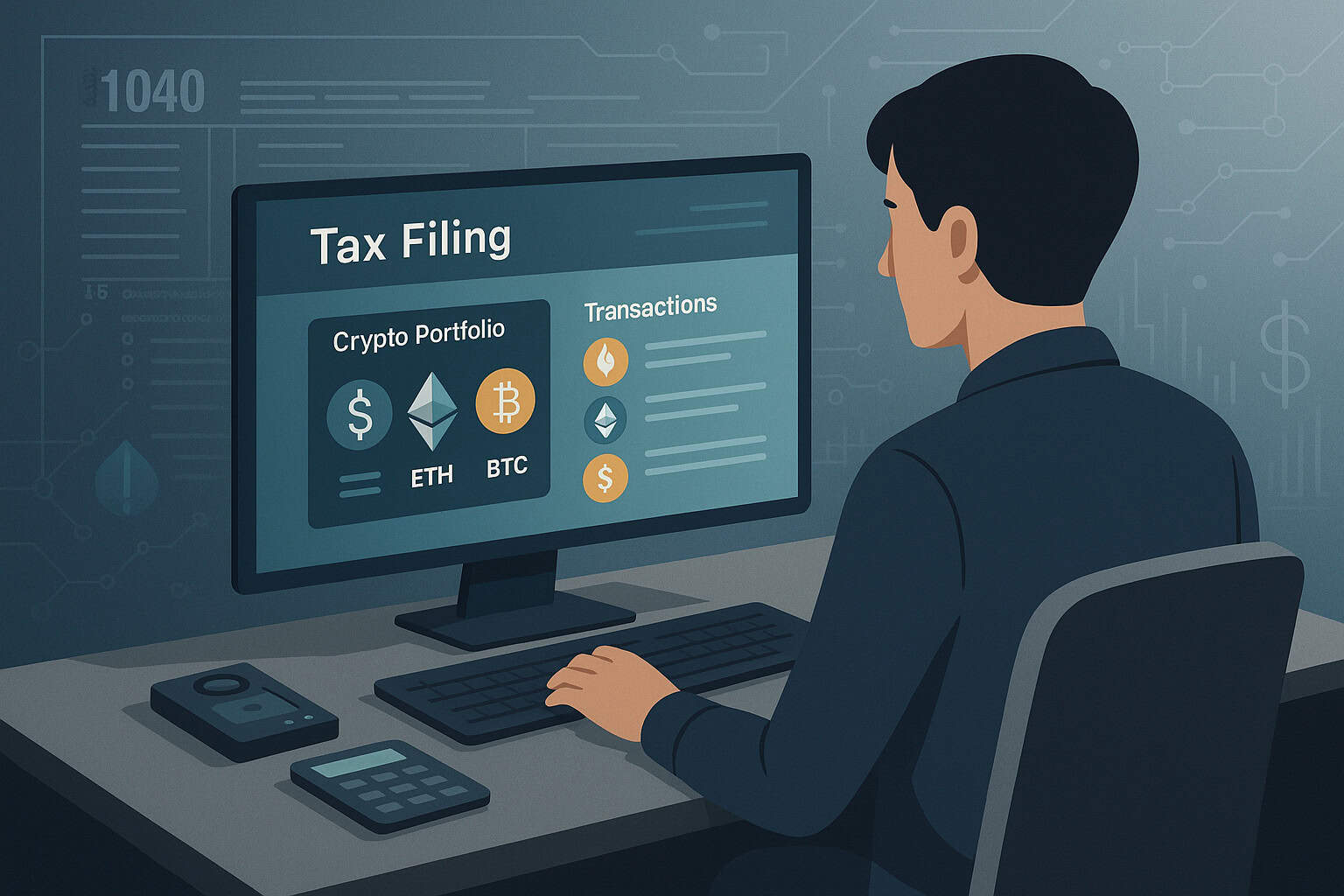Last Updated on September 25, 2025 by Patrick Camuso, CPA
If you’ve been in the crypto space for more than a few months, you already know that unfiled crypto taxes is one of the biggest friction points for digital asset investors. From poorly designed tax software to missing data across wallets, it’s no surprise that many otherwise-savvy investors have fallen behind.
At Camuso CPA, we’ve seen hundreds of clients come in with multi-year gaps in reporting, sometimes five or even ten years out of compliance. The good news? This is fixable. And the earlier you take action, the better your options will be.
This article outlines what to do if you haven’t filed crypto taxes. We’ll cover enforcement trends, what the IRS knows, and the practical steps to rebuild your records, file clean returns, and protect yourself from penalties.
📅 Schedule a Private Tax Review with Camuso CPA
The IRS Knows, And They’re Closing In
Cryptocurrency tax enforcement isn’t theoretical, it’s happening now. Since Revenue Ruling 2019-24 and the launch of Operation Hidden Treasure, the IRS has invested heavily in blockchain surveillance tools and third-party reporting.
- Over 8 million 1099 forms were issued by crypto exchanges in 2024
- The IRS uses Chainalysis and TRM Labs to monitor DeFi and DEX activity
- The 6174-A notice is being mailed at scale to taxpayers with missing reports
“We’re seeing a surge in IRS crypto notices. They often know more than you think, especially if you’ve used centralized exchanges.”, Patrick Camuso
In 2025, Form 1099-DA reporting will expand, requiring major platforms to share even more user activity. If your records aren’t clean by then, discrepancies will be obvious.

Why Unfiled Crypto Taxes Are a High-Risk Liability
The penalties for failing to file are severe, and they grow the longer you wait.
- 20% Accuracy Penalties on understated income
- Interest Charges on unpaid taxes, accruing from the original due date
- 75% Fraud Penalty for intentional misreporting
- Criminal Exposure: Up to 5 years in prison and $100,000 fines for evasion
These aren’t theoretical. In 2023, the IRS successfully prosecuted multiple NFT and Bitcoin traders. One recent case involved over 90 unreported NFT trades, leading to a pending 6-year prison sentence.
Why So Many Investors Fall Behind
Crypto tax compliance isn’t simple. The data is fragmented across wallets, exchanges, and blockchains. Most tools overpromise and underdeliver, especially when used without expert oversight.
Common problems we see:
- Assets showing zero cost basis (which overstates gains)
- Missing DeFi transactions or LP tokens
- Airdrops and rewards misclassified as non-taxable
- Wallet transfers mistaken for taxable events
“Many clients come to us after relying on software that said their reports were ‘complete’, but the math is completely off.” – Patrick Camuso
This is why Camuso CPA takes a forensic approach, auditing and correcting every transaction manually if needed.
How to Fix Unfiled Crypto Taxes (Safely and Strategically)
There’s no shortcut, but there is a clear roadmap.
1. Hire a Crypto-Savvy CPA
Don’t leave this to a generalist. Camuso CPA was one of the first U.S. firms to offer crypto-native tax services. We specialize in fixing complex backlogs.
2. Rebuild Accurate Accounting
We reconcile your wallet-by-wallet activity to rebuild your cost basis and gain/loss profile in line with Revenue Procedure 2024-28. This includes SegFIFO planning and wallet segregation.
3. Amend Prior Returns
The IRS allows most taxpayers to amend returns going back 3 years. If you’re further behind, consult about special options. Proactive amendments reduce penalty risk.
4. Consider Voluntary Disclosure
For serious exposure or international accounts, your advisor may guide you through a formal voluntary disclosure with the IRS. This can limit criminal exposure.
5. Plan Ahead
Once you’re caught up, we’ll help you implement systems to prevent future issues. This includes SegFIFO planning, wallet structure, and ongoing compliance.
📘 Learn About SegFIFO and Wallet-Based Planning
Why Work With Camuso CPA
- 100% crypto-native CPA firm since 2016
- IRS audit defense for digital asset portfolios
- Expertise in NFTs, DAOs, DeFi, and offshore wallets
- Full compliance with Rev. Proc. 2024-28
We’ve helped founders, miners, and investors fix over 10 years of reporting gaps, and we can help you do the same.
📅 Schedule a Compliance Review Now
Key Takeaways
- The IRS tracks crypto activity through advanced tools and 1099 forms
- Failing to file taxes can lead to steep civil and criminal penalties
- Many software tools underreport or miscategorize crypto events
- You can amend past returns and restore compliance
- Camuso CPA offers crypto-specific support for cleanup, planning, and growth
FAQs: Unfiled Crypto Taxes
Q: Can I go to jail for unfiled crypto taxes?
A: Yes, in extreme cases involving fraud. Most non-filers face penalties and interest, but proactive filing significantly reduces risk.
Q: Will I get audited if I file late?
A: Filing late is better than not filing. A corrected return with documentation often avoids an audit.
Q: Can I amend past crypto tax returns?
A: Yes, typically up to 3 years, and sometimes more under IRS programs.
Q: What if I only used DeFi or DEXs?
A: On-chain activity is traceable. Even if you never used Coinbase, the IRS can still identify your transactions.
Q: What if I lost access to some wallets?
Conclusion
Waiting only increases your exposure. But taking action, with the right help, can reset your financial future.
At Camuso CPA, we don’t just file returns. We rebuild trust in your financial data, prepare for audits, and help crypto investors move forward with clarity.
“We don’t just patch up reports, we build clean systems for long-term trust and success.” Patrick Camuso
Next Up
Schedule a time to speak with our team in detail about your taxes and accounting.
Learn how Digital Impost can automate Web3 Sales Taxes
Visit our Learning section to find out more about what we do and the resources we offer.
Read our Definitive Guide for Cryptocurrency Taxation to learn about cryptocurrency taxes from an experienced CPA.
Read our Cryptocurrency Tax Planning Guide to learn about saving cryptocurrency taxes from an experienced CPA.
Watch A Video On This Topic






